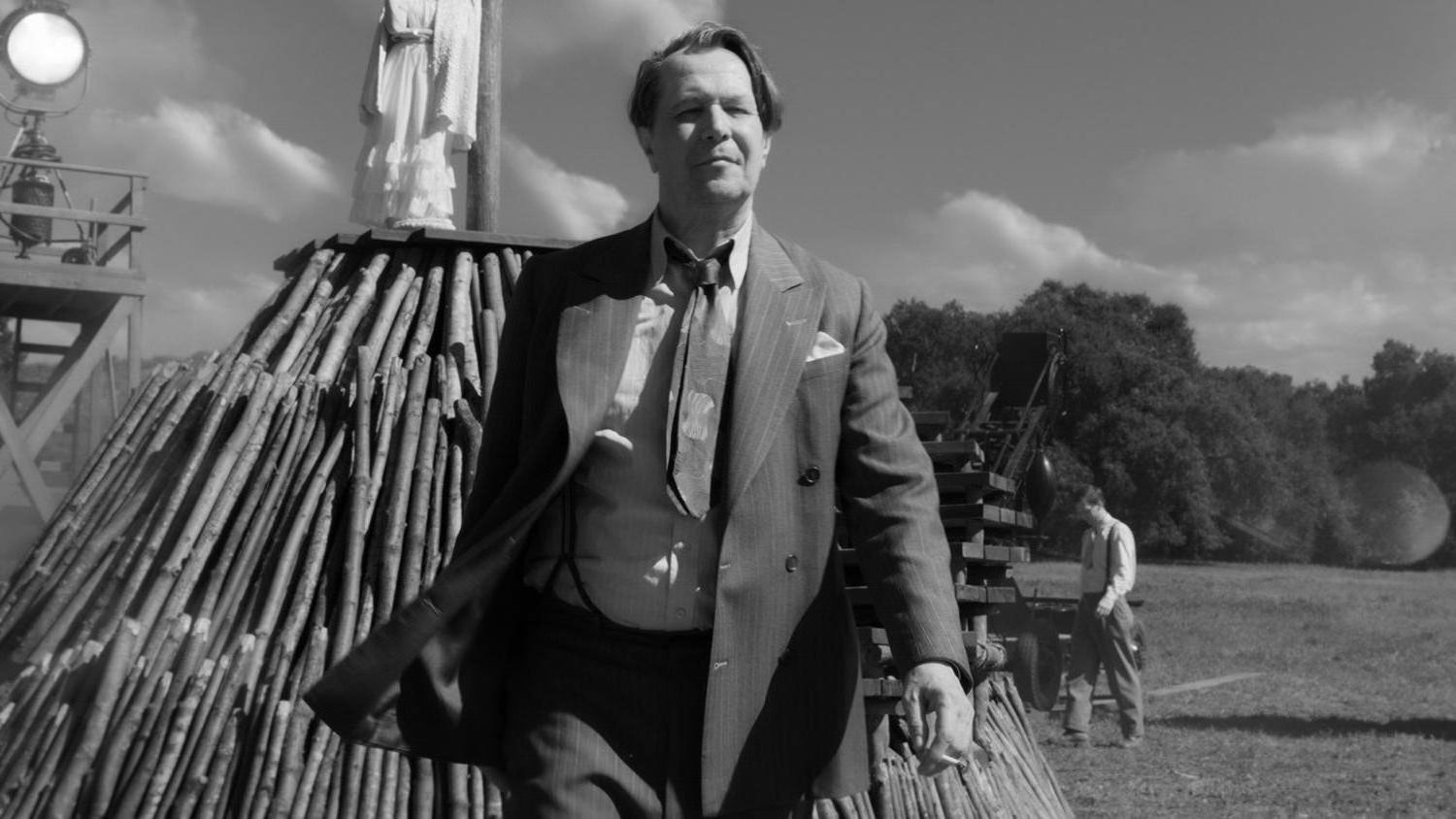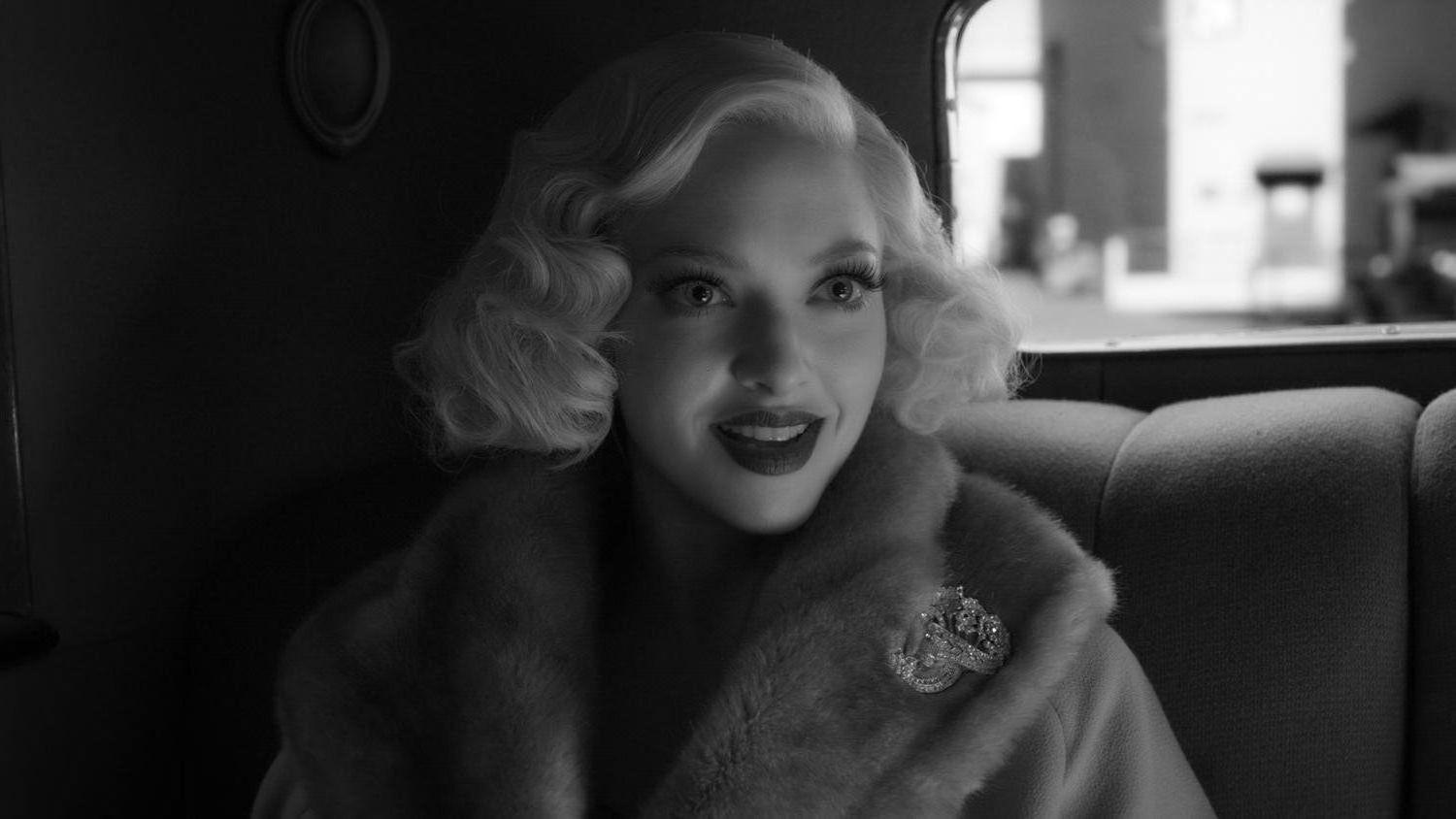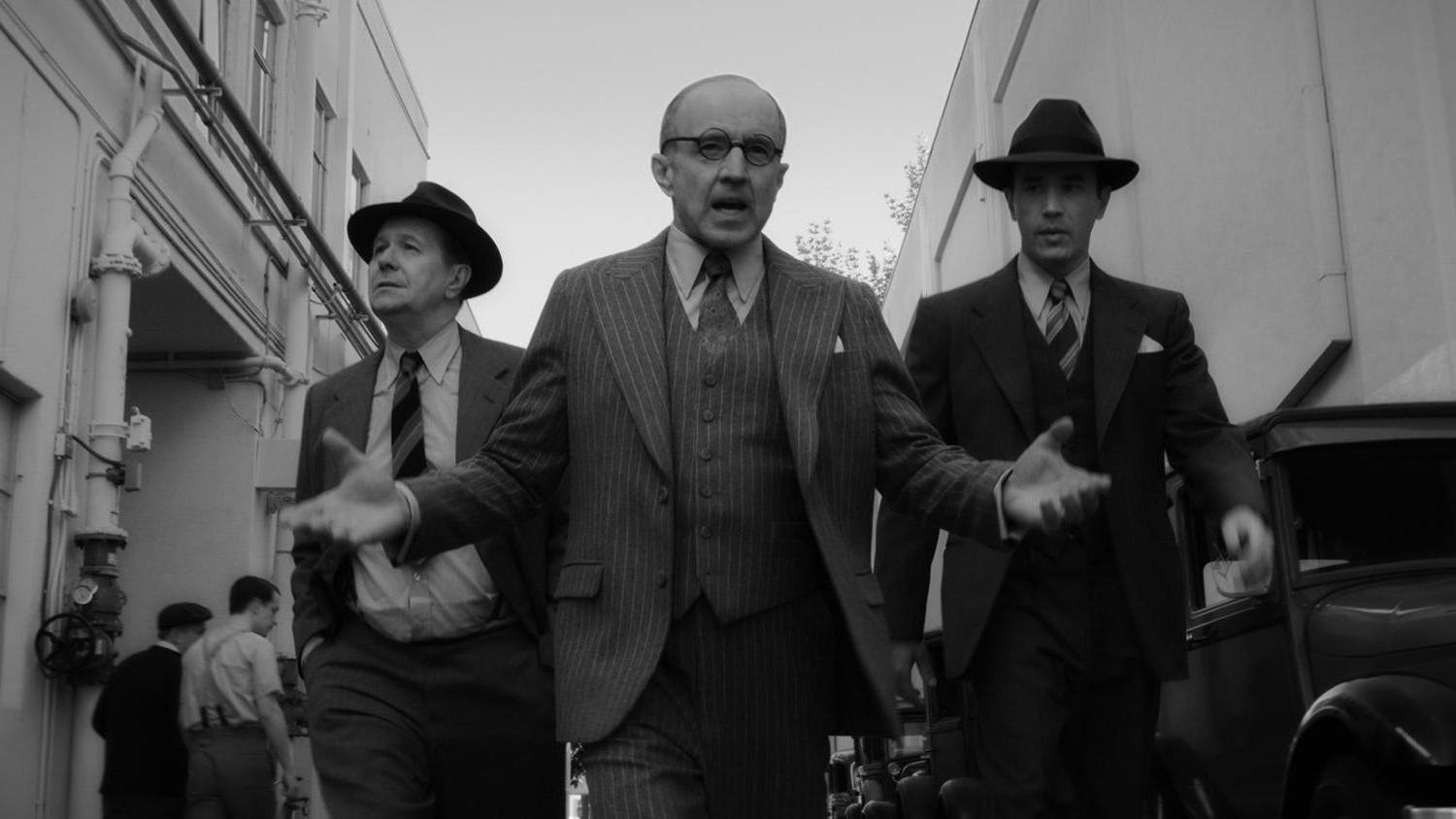
Mank Review Movie
Mank Review
Mank David Fincher's eleventh feature, is a film that ends with "the magic of movies". Don't fall for the gimmicks. As usual, Fincher's second film after his 2014's Gone Girl isn't a gooey-eyed Valentine to the dream factory. Instead, it's a clear-eyed love note to Hollywood and is awed by the glamour and the messy reality of the film business and the process of making and wrapped in the most stunning filmmaking art possible.
A love-in-the-making for Fincher The story was written by the director's father Jack prior to the time that Fincher directed Alien3 The film is an intricate, rich piece on (among many other topics) the interplay between politics and film alcoholism, manipulation of media, Hollywood lore, wasted talent, and the struggle to maintain the integrity of your work even when doing this is at your own peril. It's a triumphant return filmmaking as a feature for the director after his brief stint on the serial-killer drama Mindhunter and the animated collection Love Death + Robots, regardless of the irony in the fact that a praising to the cinema's glory will likely to be watched on TV orthe worst case scenario — God forbid, a phone.

There have been dramatic renditions of the making of Citizen Kane previously (most notably the Ridley Scott-directed RK0 281, named for Kane's production number however, Mank is more specific in its approach. Instead of being a soup-to nuts'making of", this is a deep look into the mind and instances that led to its creation that is interspersed across 2 distinct time periods. The present tense depicts a an exhausted screenwriter Herman J. Mankiewicz (Gary Oldman) who is a sharp however, mostly drunk-wit who is confined to the North Verde Ranch in the Mojave Desert, at the urging of theatrical genius Orson Welles (Tom Burke) to write a screenplay mocking newspapers magnate William Randolph Hearst (Charles Dance). After a car accident, recovering and a shattered scribe, the scribe is given only 90 days (or according to Welles says 60 days, with 30 days left to "noodle") for him to dictate his work in the presence of Rita Alexander (Lily Collins) who is who is an English secretary who takes notes "like an intuitive". The result is a stunningly performed and staged chamber work and a showdown among Mank and Welles colleague John Houseman (Sam Troughton) to meet the deadline as well as among Mank as well as Rita in order to ensure that the author stays hydrated as well as between Mank and himself to stay in the spirit of his talent.
Mank isn't just a nostalgia dream Mank is also a reflection of the present.
Fincher uses Burke's Welles sparingly, often as a disembodied presence on the phone, but the actor captures both Welles' instantly recognisable voice and you'd-follow-him-anywhere charm. The film does not even hint at the tense battle for screen credits — Mankiewicz was originally set to be denied recognition however, the scriptwriter and Welles were awarded the same credit and both won Oscars however neither received the statuettes. And while it's clear that the film falls in the direction of Mank however, it offers an impartial portrayal of the director as well. The sections are also aided by the superb Collins who provides Rita the strength she needs while also making more vulnerable remarks as a lover who is fighting in World War II.
The second strand of the film's story that flits between Mank's early career in 1930s Hollywood is complex and demanding. Fincher is a high-flyer by avoiding the concept of the notion of cause and effect while capturing the events that shaped Kane's work (thankfully there's no one who gets tossed off the skid). The film's most lively segment, Mank's early adventures are a jolly (but nevertheless grounded) depiction of the 1930s in Hollywood whether that's Mank as well as his Algonquin group spouting off horror film concepts in the presence of David O. Selznick (Toby Leonard Moore) and Josef Von Sternberg (Paul Fox) or a stunning stroll-and-talk session in the company of Louis B. Mayer (Arliss Howard) Sutured with anecdotes and insider information regarding his time in the Golden Age; be it Mayer telling the group of MGM stars that they need to have a pay cut or rage at an episode of the Marx Brothers grilling hot dogs in the open flame of Mayer's office. From the grandiloquent old-school title card to the end the film is a movie lover's dream (the mythical genitalia connection that is the source of "Rosebud" is aptly referenced) and the film industry scenes are frequently suffused by the rat-a-tat style of delivery and wit of a raunchy comedy. In this regard the script, crafted with the help of Forrest Gump scribe Eric Roth and Fincher himself, is as full of many delights in the language as Aaron Sorkin's verbal pyrotechnics of The Social Network.

However, Mank isn't just a nostalgic reminiscence It also addresses current issues. The basis of Charles Foster Kane arrives when Mank enters the circle of William Randolph Hearst (there's a amazing discussion in the group about Hitler and the politics of an Hearst party). Mank is a ringside guest in the film as Mayer as well as Second Lieutenant Irving Thalberg (Ferdinand Kingsley) as well as Hearst begin to influence the governor's election of California to favor Republican Frank Merriam, via fake newsreels and radio broadcasts that discredit Democrat Upton Sinclair. In addition, there are concerns concerning the direction of the cinema industry, and the repercussions of 2020 are hard to ignore. Mank has a partner in the hostess of Hearst's company and his partner the actor Marion Davies, the inspiration for Susan Alexander in Kane. The career-best Amanda Seyfried plays Davies as an enigmatic woman, more intelligent than she admits totally in control of her character that becomes a comrade for Mank to rely on (listen to her as she morphs into her Brooklyn accent to talk about Mank's script). From walking through Hearst's Zoo gardens (a dead pun for Kane's Xanadu) talking about her strengths and begging Mank to be gentle with Hearst when he writes his story, Seyfried confirms her dramatic skills in every scene.
The entire film is shot in stunning black and white, simultaneously elegant and contemporary. Fincher has shot in black and white before during his time as a pop promoter but here, the softened images feel like it's from the '30s/'40s. There is the call-back is accentuated by the crackling, compressed soundtrack, and an old-fashioned reel change complete with "cigarette burns" (cue marks that indicate the time a new reel is required that made an appearance during Fight Club). There are hints of Kane's style and imagesthe bottle sliding from hand to flooring; Mank in bed as the silhouetted figures of Welles is looming large; an incredibly montage of the election night however nothing is overtly kitsch or blatant. Mindhunter Erik Messerschmidt's cinematography is awash in dark, gloomy blacks and over-exposed windows, creating the world both elegant (witness Davies leaning forward in the back of a car) and grimy, and complemented with Trent Reznor and Atticus Ross The score alternates between fast-paced jazz and Bernard Herrmann-like brood.
The love for the 1940s also bleeds into a pre-Method-acting style. Mank is full of outstanding performances that range from Howard in the role of Mayer in the film and Tuppence Middleton as Mank's sulky spouse, "poor" Sara, to Tom Pelphrey as Mank's younger and more attractive brother Joseph who shares his brother's academic ambitions and a sense of obligation to live in Hollywood as well as Charles Dance as Hearst, hilariously telling the parable of the monkey who grinds the organ. This is the film of Oldman. In every frame, Oldman shines as a well-dressed court jester, but sad as someone struggling with his talents ("I should have been doing something sooner") and slowly realizes the significance in his words. Welles was once — possibly incorrectly – rejected Citizen Kane as "dollar-book Freud" and explained the complexity of life's challenges in a single answer. Oldman and Fincher do not fall into similar traps. An actor could perform a grand performancefor instance, a final-reel rage during a formal dinner is pure theatreHowever, in both timespans, he perfectly portrays an individual with the determination to stick to his values and his instincts that eventually result in his most impressive work. With these truths and the elegance, Mank delivers the "magic of movies" in a unique style.

